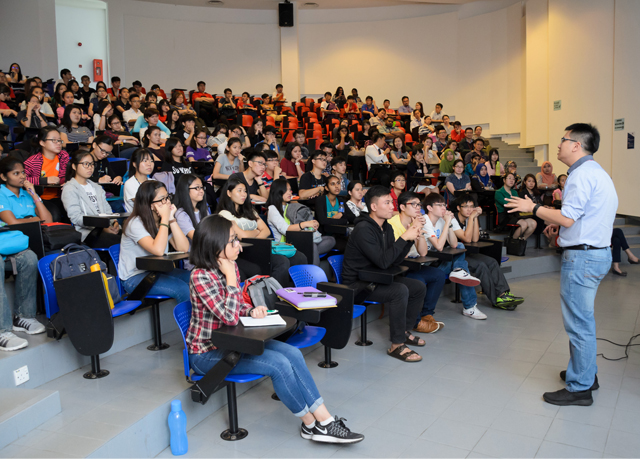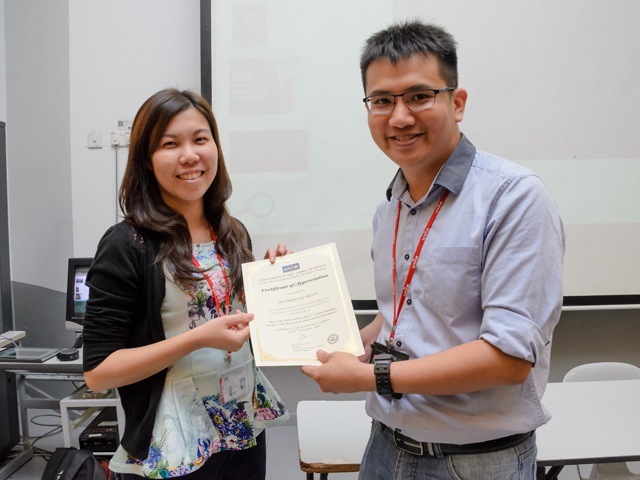

Pheh explaining the symptoms of depression
Turns out, being strong all the time may not necessarily be healthy in the long term, according to Clinical Psychologist Pheh Kai Shuen. This is because “being too strong for too long” is sometimes the factor causing an individual to fall into depression, as he explained at his “Don’t let them suffer alone: Understanding people with depression and suicidal ideations” talk, organised by the Centre for Foundation Studies (CFS) of Kampar Campus on 11 November 2016.
Besides understanding the causes of depression, CFS (Kampar Campus) Director Tan Lee Siew along with the 137 audience members also learnt of the impacts of depression and ways to identify and approach individuals with depression. Self-help strategies were also shared at the talk, which participants found useful for themselves to avoid depression or suicidal intentions.
Exercise, as a self-help strategy, was highlighted as a healthy, effective and free method to overcome stress. Pheh, who is also a lecturer from the Department of Psychology and Counselling of the Faculty of Arts and Social Science, assured participants that counsellors from the Department of Student Affairs are there to help them cope with and overcome tough or stressful times.
In cases where participants come to know of depressed friends, Pheh advised them to not turn a blind eye and instead be vigilant of symptoms, such as sadness, change in appetite, lethargy, self-doubt, sense of worthlessness, low confidence, and portrayals of suicidal intentions. They could be of great help to their friends in getting them the right help for recovery.
He then shared methods for participants to approach individuals with depression, which included finding a right time and space to talk, not jumping to conclusions, respecting their friends, and listening attentively.
Pheh emphasised that the trust gained from listening attentively will embolden depressed individuals to be more open to the help and support given. Hence, he further advised participants to be supportive, encouraging, objective, hopeful, and to explain the benefits of getting professional help.
Pheh advised participants to bring depressed friends to seek professional help using three methods — the three stars referral, four stars referral, and five stars referral method — to convince the affected person.
The three stars referral method is where participants give referral information and convince the affected individual to not attempt any suicidal actions; the four stars referral method is about getting the affected individual’s commitment to seek and arrange for professional help, while being accompanied; and lastly the five stars referral method is where participants take the affected individual directly to meet the professionals, or to contact the professionals directly.
Despite being only an hour long, the talk saw participants gaining new insights into depression and learning of ways to reduce stress or to avoid depression. He reminded participants to always take good care of themselves to avoid any unfortunate events in the future.
The talk then ended with an interactive Q&A session by staff and participants, and followed by Tan presenting a token of appreciation to Pheh.

Participants listening attentively on how to approach a depressed individual

Students and lecturers asking about recovery from depression and the effects of psychotherapy

Tan presenting a certificate of appreciation to Pheh

Front row, second from left: Tan and Pheh with participants at the end of the talk
Wholly owned by UTAR Education Foundation Co. No. 578227-M LEGAL STATEMENT TERM OF USAGE PRIVACY NOTICE